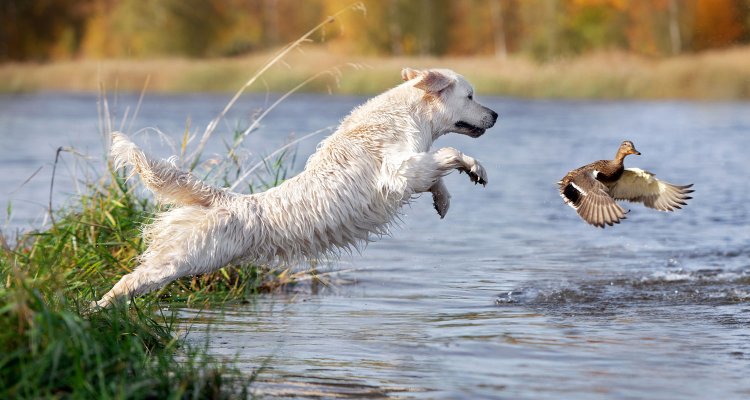
News
Five questions on avian influenza and (domestic) animals
Bird flu, caused by avian influenza viruses, occurs among aquatic birds in nature and is highly contagious for poultry. Other animals, such as dogs and cats, may contract bird flu in exceptional cases. Nancy Beerens, virologist at Wageningen Bioveterinary Research (WBVR) in the Netherlands, answers five questions on if and how (domestic) animals may contract bird flu and how to recognise the disease.
1. Can my dog or cat get bird flu?
Dogs or cats may be sensitive to the bird flu virus if they come into contact with a dead bird, for example, by ingesting it. Therefore, keeping dogs on a leash in water-rich areas where dead aquatic birds may be found is highly recommended. No cats or dogs have been infected with the current bird flu strain, limiting our knowledge of the symptoms. An infection in dogs and cats may be asymptomatic. If symptoms do appear, the animal will have a fever, show shortness of breath and panting, lethargy, eye infections, secretions from the eyes and nose and nervous disorders such as trembling and staggering.
Contact your veterinarian if your dog or cat displays (combinations of) these symptoms and has (possibly) been in contact with infected wild birds. Pets in the Netherlands that display nervous disorders and perish after being in contact with wild birds can be reported to the NVWA. Samples may be taken from live animals in consultation with the veterinarian and submitted to our lab.
2. I keep poultry (chickens) and/or aquatic birds in my yard. Am I obligated to isolate them?
Sick and dead birds with bird flu are found throughout the Netherlands. Thus, a general housing obligation was put in place in our country on October 26, 2021, for private owners of poultry, aquatic and flightless birds. This mandate also applies to individuals keeping this type of bird in their backyard. You may isolate the birds by placing a tarp over the coop. This helps protect the birds from infection. Do you suspect your birds may have been infected? Contact your veterinarian.
Avoid direct contact with sick or dead animals. Wear gloves when handling the animal, and wash your hands afterwards.
3. Can my rabbits get bird flu?
If the rabbits are kept in the backyard, the chance of them becoming infected is very small. No cases of rabbits becoming infected with the current bird flu strain are known.
4. I keep parrots. Can I still allow them in the outdoor aviary?
The risk of your parrots becoming infected is very small. This may happen if faeces from infected birds enter the aviary. Allowing your birds in the outdoor aviary is permitted. Parrots do not fall within the isolation obligation of the Netherlands, and whether you want to take this (slight) risk is up to you.
If you want to place branches or other natural materials in the aviary without endangering your animals, we suggest you wait three days before providing the birds with the materials. The avian influenza virus can survive on wood for up to three days, so this will minimise the risk of infection.
5. Can I still enter my homing pigeon in competitions?
There are currently no restrictions in the Netherlands for homing pigeon competitions. Pigeons can, however, contract bird flu but generally do not spread the virus and show no symptoms.